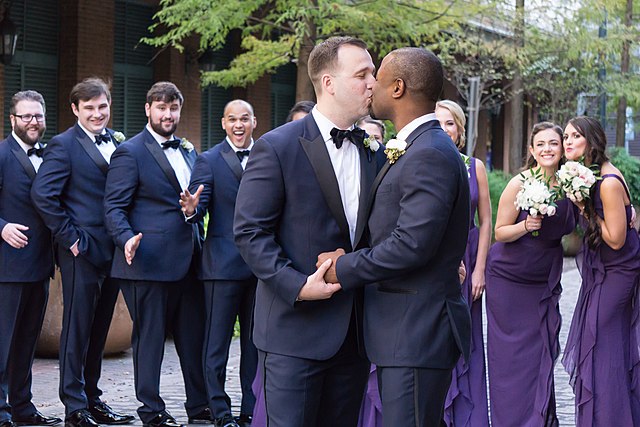Debunking common myths about gay marriage (same-sex marriage) in the United States is essential to provide accurate information and counter misconceptions. Here are some of the most prevalent myths and the corresponding facts:
Myth 1: Legalizing Gay Marriage Threatens Traditional Marriage.
- Fact: There is no evidence to suggest that legalizing gay marriage threatens traditional marriage. Marriage equality expands the institution of marriage to include same-sex couples but does not diminish the rights or sanctity of opposite-sex marriages. Research shows that states that legalized same-sex marriage did not experience higher divorce rates or negative impacts on heterosexual marriage.
Myth 2: Gay Marriage Goes Against Religious Freedom.
- Fact: Legalizing gay marriage does not infringe upon religious freedom. Religious institutions are not required to perform or recognize same-sex marriages if it goes against their beliefs. The separation of church and state ensures that religious organizations can maintain their own doctrines regarding marriage while same-sex couples gain equal protection under the law.

Myth 3: Children Raised by Same-Sex Couples Suffer Negatively.
- Fact: Numerous studies have shown that children raised by same-sex couples fare just as well as those raised by heterosexual couples. The well-being of children is primarily determined by factors such as parental love, support, and socioeconomic stability, rather than the gender of their parents.
Myth 4: Marriage Equality Was Forced on the States.
- Fact: Marriage equality in the United States was not imposed by the federal government but came as a result of various legal battles at the state level. It was not a federal mandate but a series of court decisions and state legislative actions that led to nationwide recognition of same-sex marriage in the Obergefell v. Hodges case in 2015.
Myth 5: Marriage Equality Is an Attack on Religious Values.
- Fact: Marriage equality is a matter of civil law that pertains to the legal recognition of relationships between individuals. It does not force religious institutions to change their beliefs or practices. Many religious denominations and leaders have embraced LGBTQ+ equality and even perform same-sex wedding ceremonies.
Myth 6: Marriage Equality Is a Recent and Unpopular Development.
- Fact: The movement for marriage equality has been ongoing for decades. Public opinion has evolved over time, with increasing support for same-sex marriage. By the time the U.S. Supreme Court legalized it nationwide in 2015, public opinion polls indicated a growing majority in favor of marriage equality.
Myth 7: Legalizing Gay Marriage Will Lead to Other Unconventional Marriages.
- Fact: Legalizing same-sex marriage is a distinct issue from other forms of marriage. Marriage equality does not necessarily open the door to other unconventional forms of marriage, such as polygamy or incestuous marriages. Each type of marriage proposal is considered on its own merits and may involve different legal, ethical, and cultural considerations.
Debunking these myths is crucial for promoting understanding and fostering a more inclusive and equitable society. Marriage equality has brought legal, emotional, and social benefits to many same-sex couples and their families in the United States, without undermining the rights or institutions of others.












